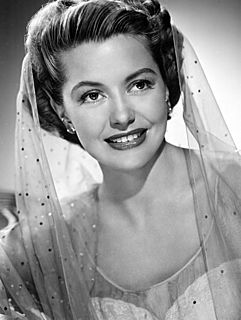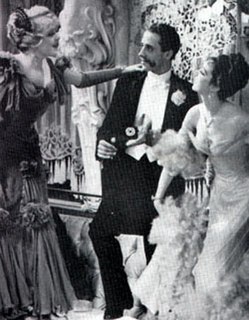See also
- Astar (disambiguation)
- Astair Airlines, a defunct Russian airline
Astaire may refer to:

Top Hat is a 1935 American musical screwball comedy film in which Fred Astaire plays an American tap dancer named Jerry Travers, who comes to London to star in a show produced by Horace Hardwick. He meets and attempts to impress Dale Tremont to win her affection. The film also features Eric Blore as Hardwick's valet Bates, Erik Rhodes as Alberto Beddini, a fashion designer and rival for Dale's affections, and Helen Broderick as Hardwick's long-suffering wife Madge.
Salsa most often refers to:

Ginger Rogers was an American actress, dancer, and singer during the Golden Age of Hollywood. She won an Academy Award for Best Actress for her starring role in Kitty Foyle (1940), and performed during the 1930s in RKO's musical films with Fred Astaire. Her career continued on stage, radio and television throughout much of the 20th century.

Fred Astaire was an American actor, dancer, singer, choreographer, and television presenter. He is widely considered the greatest dancer in film history.

The Band Wagon is a 1953 American musical romantic comedy film directed by Vincente Minnelli, starring Fred Astaire and Cyd Charisse. It tells the story of an aging musical star who hopes a Broadway show will restart his career. However, the play's director wants to make it a pretentious retelling of the Faust legend and brings in a prima ballerina who clashes with the star. Along with Singin' in the Rain (1952), it is regarded as one of the finest Metro-Goldwyn-Mayer musicals, although it was a modest box-office success on first release.

Adele Astaire Douglass, was an American dancer, stage actress, and singer. After beginning work as a dancer and vaudeville performer at the age of nine, Astaire built a successful performance career with her younger brother, Fred Astaire.

Cyd Charisse was an American actress and dancer.
Shall We Dance may refer to:

Swing Time is a 1936 American musical comedy film, the sixth of ten starring Fred Astaire and Ginger Rogers. Directed by George Stevens for RKO, it features Helen Broderick, Victor Moore, Betty Furness, Eric Blore and Georges Metaxa, with music by Jerome Kern and lyrics by Dorothy Fields. Set mainly in New York City, the film follows a gambler and dancer, "Lucky" (Astaire), who is trying to raise money to secure his marriage when he meets dance instructor Penny (Rogers) and begins dancing with her; the two soon fall in love and are forced to reconcile their feelings.
Bojangles may refer to:
That's Entertainment! is a 1974 American compilation film released by Metro-Goldwyn-Mayer to celebrate the studio's 50th anniversary. The success of the retrospective prompted a 1976 sequel, the related 1985 film That's Dancing!, and a third installment in 1994.

Broadway Melody of 1940 is a 1940 MGM film musical starring Fred Astaire, Eleanor Powell and George Murphy. It was directed by Norman Taurog and features music by Cole Porter, including "Begin the Beguine".

Ziegfeld Follies is a 1945 American musical comedy film released by Metro-Goldwyn-Mayer, primarily directed by Vincente Minnelli, with segments directed by Lemuel Ayers, Roy Del Ruth, Robert Lewis, and George Sidney, the film's original director before Minnelli took over. Other directors that are claimed to have made uncredited contributions to the film are Merrill Pye, Norman Taurog, and Charles Walters. It stars many MGM leading talents, including Fred Astaire, Lucille Ball, Lucille Bremer, Fanny Brice, Judy Garland, Kathryn Grayson, Lena Horne, Gene Kelly, James Melton, Victor Moore, William Powell, Red Skelton, and Esther Williams.

Follow the Fleet is a 1936 American RKO musical comedy film with a nautical theme starring Fred Astaire and Ginger Rogers in their fifth collaboration as dance partners. It also features Randolph Scott, Harriet Hilliard, and Astrid Allwyn, with music and lyrics by Irving Berlin. Lucille Ball and Betty Grable also appear, in supporting roles. The film was directed by Mark Sandrich with script by Allan Scott and Dwight Taylor based on the 1922 play Shore Leave by Hubert Osborne.

The Barkleys of Broadway is a 1949 Technicolor musical film from the Arthur Freed unit at Metro-Goldwyn-Mayer that reunited Fred Astaire and Ginger Rogers after ten years apart. Directed by Charles Walters, the screenplay is by Betty Comden, Adolph Green and Sidney Sheldon, the songs are by Harry Warren (music) and Ira Gershwin (lyrics) with the addition of "They Can't Take That Away from Me" by George and Ira Gershwin, and the choreography was created by Robert Alton and Hermes Pan. Also featured in the cast were Oscar Levant, Billie Burke, Jacques François and Gale Robbins. It is the last film that Astaire and Rogers made together, and their only film together in color. Rogers came in as a last minute replacement for Judy Garland, whose frequent absences due to a dependence on prescription medication cost her the role.

Second Chorus is a 1940 Hollywood musical comedy film starring Paulette Goddard and Fred Astaire and featuring Artie Shaw, Burgess Meredith and Charles Butterworth, with music by Artie Shaw, Bernie Hanighen and Hal Borne, and lyrics by Johnny Mercer. The film was directed by H. C. Potter and produced independently for Paramount Pictures by Boris Morros, with associate producers Robert Stillman and (uncredited) Fred Astaire. The film's copyright expired in 1968 and it is now in the public domain.
Kenneth Valentine Barnes was a British writer, record producer, broadcaster, musicologist, film historian, film maker, songwriter and music publisher.

"The Way You Look To-night" is a song from the film Swing Time that was performed by Fred Astaire and composed by Jerome Kern with lyrics written by Dorothy Fields. It won the Academy Award for Best Original Song in 1936. Fields remarked, "The first time Jerry played that melody for me I went out and started to cry. The release absolutely killed me. I couldn't stop, it was so beautiful."

Evergreen is a 1934 British musical film directed by Victor Saville starring Jessie Matthews, Sonnie Hale and Barry MacKay. The film is based on the 1930 musical Ever Green, also starring Matthews, who plays a dual role as mother and daughter.

The Chita Rivera Awards for Dance and Choreography celebrate outstanding dance and choreography in theatre, both on Broadway and Off-Broadway and in film at an annual ceremony in New York City at the Skirball Center for the Performing Arts. Now carrying the namesake of two-time Tony-winning dance icon Chita Rivera, The Rivera Awards will be presented under the auspices of American Dance Machine, an organization dedicated to the preservation of great musical-theater choreography.